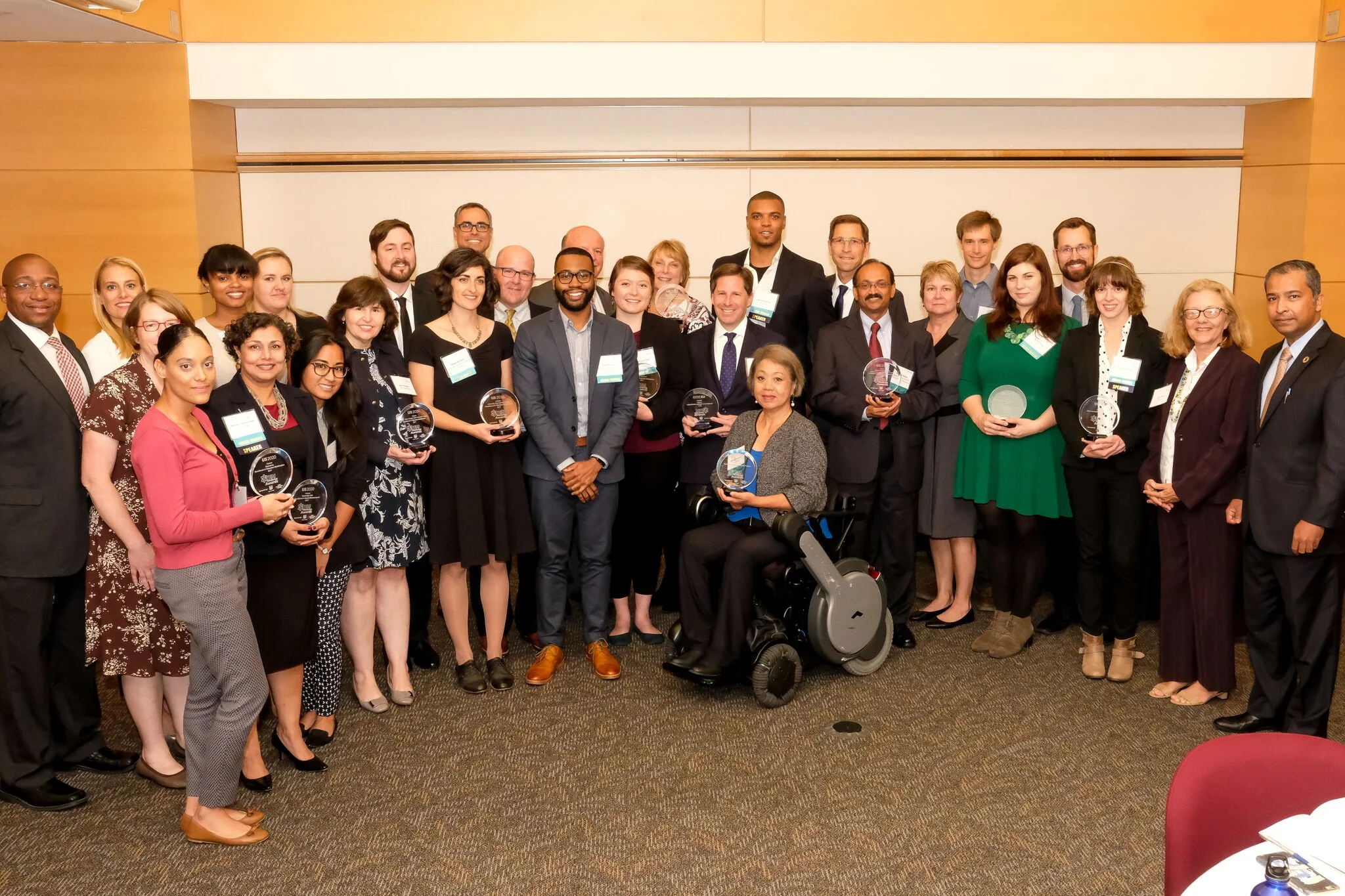In the quest for college and career readiness, policymakers are slowly but surely coming around to the importance of career readiness. Though much of this nascent effort is focused on career readiness for high schoolers, middle school is beginning to enter the discussion, too. The middle grades are a crucial time to engage, or reengage, students and put them on a path to college and career success. Research has demonstrated that grades, attendance, and engagement in middle school are strong predictors of high school graduation and postsecondary success. The Everyone Graduates Center at Johns Hopkins University found that “sixth graders who failed math or English/reading, or attended school less than 80% of the time, or received an unsatisfactory behavior grade in a core course had only a 10% to 20% chance of graduating [high school] on time.”
Read MoreThis morning, US2020 announced the winners of the third annual US2020 STEM Mentoring Awards. The awards are a national platform to celebrate and encourage exceptional work in science, technology, engineering and math (STEM) mentoring. Awards were handed out at the Ronald Reagan Building and International Trade Center, where national leaders in this field are discussing strategies for advancing STEM opportunity in the United States.
Read MoreAs summer’s blaze softens into autumn hues, our city’s children are back in the schoolhouse. For many students in the Boston Public Schools, summer was more productive, inspirational and fun than they expected. This is thanks to citywide work to replace traditional summer school with creative and research-based summer learning, as well as a growing commitment in Boston to ensure all students, regardless of family income, access a wide range of summer activities.
Read MoreHave you heard anything about DACA and/or DAPA? DACA stands for Deferred Action for Childhood Arrivals, DACA is an American immigration policy founded by the Obama administration in June 2012. Deferred Action for Parents of Americans and Lawful Permanent Residents sometimes called Deferred Action for Parental Accountability, is a planned American immigration policy to grant deferred action status to certain undocumented immigrants. DAPA and DACA give immigrants opportunities such as employment, but there are some downsides to DACA and DAPA that affect many immigrants. DACA and DAPA programs do too little to protect undocumented immigrants while allowing them to legally stay in the US because their rights can be easily taken away and they don’t know if they can get citizenship. But others, like Republicans think that immigrants get too much support because there is too much spent on the immigrants.
Read More




